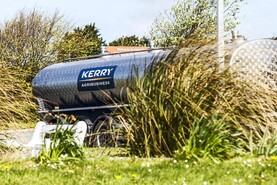The Department of Agriculture is fearful that it may be difficult to get dairy farmers to apply for future environmental schemes due to the relatively low payment rates that farmers are eligible for.
A full report evaluating the Green Low-Carbon Agri-Environmental Scheme (GLAS) was promised by Department officials, to be delivered in May 2019. So far, this report has not been published.
The report will look at a number of aspects, including farmers’ attitudes to the scheme. It will also examine what GLAS actions worked and which were less successful after a series of field-based evaluations. This will go a long way to shaping the next environmental scheme and what actions will form the basis of this scheme.
A detailed literature review has already been carried out by the Department where it compared GLAS to REPS.
The review found that REPS had a positive impact on water quality and awareness of environmental issues. However, there was less evidence of an impact on biodiversity.
In general, it was viewed that REPS was more attractive to lower-income extensive farmers, but REPS4 did attract more intensive dairy farmers. This uptake of GLAS by the dairy sector was not replicated, with GLAS having a maximum payment of €5,000.
Attitude survey
Baseline findings have been revealed, which were the results of talking to 300 farmers involved in the scheme and 100 farmers not involved.
Of those involved in the scheme, 73% were willing to participate in future environmental schemes.
However, they highlighted confusion around the legislation and regulations of the scheme.
Of the farmers who did not participate in the scheme, the report found that they were more likely to be full-time farmers, with an average farm size larger than GLAS participants.
They got a higher percentage of their income from farming and also had a greater reliance on rented land.
The main barriers to participation in the scheme that were identified were that payment levels were considered too low, the scheme was considered too complicated and a fear of inspections.
The Department of Agriculture is fearful that it may be difficult to get dairy farmers to apply for future environmental schemes due to the relatively low payment rates that farmers are eligible for.
A full report evaluating the Green Low-Carbon Agri-Environmental Scheme (GLAS) was promised by Department officials, to be delivered in May 2019. So far, this report has not been published.
The report will look at a number of aspects, including farmers’ attitudes to the scheme. It will also examine what GLAS actions worked and which were less successful after a series of field-based evaluations. This will go a long way to shaping the next environmental scheme and what actions will form the basis of this scheme.
A detailed literature review has already been carried out by the Department where it compared GLAS to REPS.
The review found that REPS had a positive impact on water quality and awareness of environmental issues. However, there was less evidence of an impact on biodiversity.
In general, it was viewed that REPS was more attractive to lower-income extensive farmers, but REPS4 did attract more intensive dairy farmers. This uptake of GLAS by the dairy sector was not replicated, with GLAS having a maximum payment of €5,000.
Attitude survey
Baseline findings have been revealed, which were the results of talking to 300 farmers involved in the scheme and 100 farmers not involved.
Of those involved in the scheme, 73% were willing to participate in future environmental schemes.
However, they highlighted confusion around the legislation and regulations of the scheme.
Of the farmers who did not participate in the scheme, the report found that they were more likely to be full-time farmers, with an average farm size larger than GLAS participants.
They got a higher percentage of their income from farming and also had a greater reliance on rented land.
The main barriers to participation in the scheme that were identified were that payment levels were considered too low, the scheme was considered too complicated and a fear of inspections.






 This is a subscriber-only article
This is a subscriber-only article










SHARING OPTIONS: